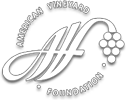Role of Cystathionine b-Synthase in the Production of Hydrogen Sulfide by Saccharomyces cerevisiae
The objective of this proposal was to determine the role of cystathionine b-synthase (encoded by the CYS4 gene) in hydrogen sulfide formation in wine strains of Saccharomyces. An analysis of allele diversity in low and high H2S producing yeast strains revealed that one strain, UCD932 (Ba2), carried a specific mutation in CYS4 that may explain the low sulfide production. A series of experiments were performed to define the role of CYS4 allele variation in sulfide production. CYS4 mutant and wild type alleles were cloned and used to transform a series of strains with varying H2S production. Low sulfide production was dominant in UCD932, meaning that transformation of UCD932 with the wild type CYS4 allele did not lead to an increase in sulfide formation. However, transformation of high H2S producing strains with the mutant form of CYS4 did not lead to a reduction in sulfide levels under any condition evaluated. This finding suggests that the mutated allele of CYS4, which leads to stabilized production of cystathionine b-synthase, is not solely responsible for the low H2S producing phenotype of this strain.This proposal was originally requested for two years of research funding. However, better than anticipated progress was made in the first year and the first two objectives have been met or are soon to be completed. The third objective called for a detailed analysis of the impact of truncation mutants of CYS4 on the level of H2S production. Although this is still an interesting area of investigation, we found no evidence that mutation of CYS4 could explain the low level of sulfide produced by UCD932. It is still possible that the altered CYS4 gene of UCD932 in combination with other genetic variations in this strain is responsible for low sulfide production, but it is not sufficient by itself. Therefore, a more global approach to defining the genetic basis of low sulfide production will be proposed in a new grant.

